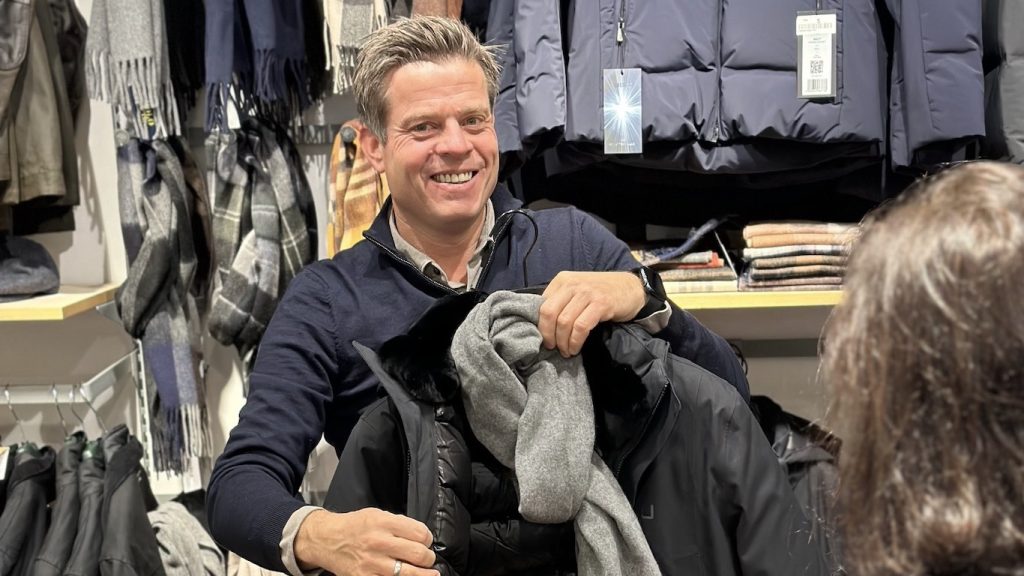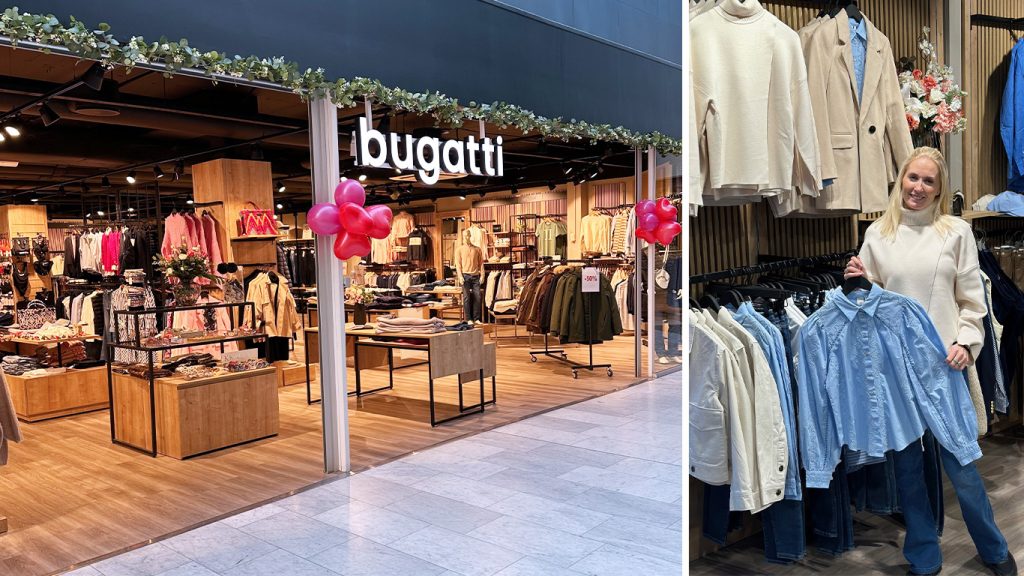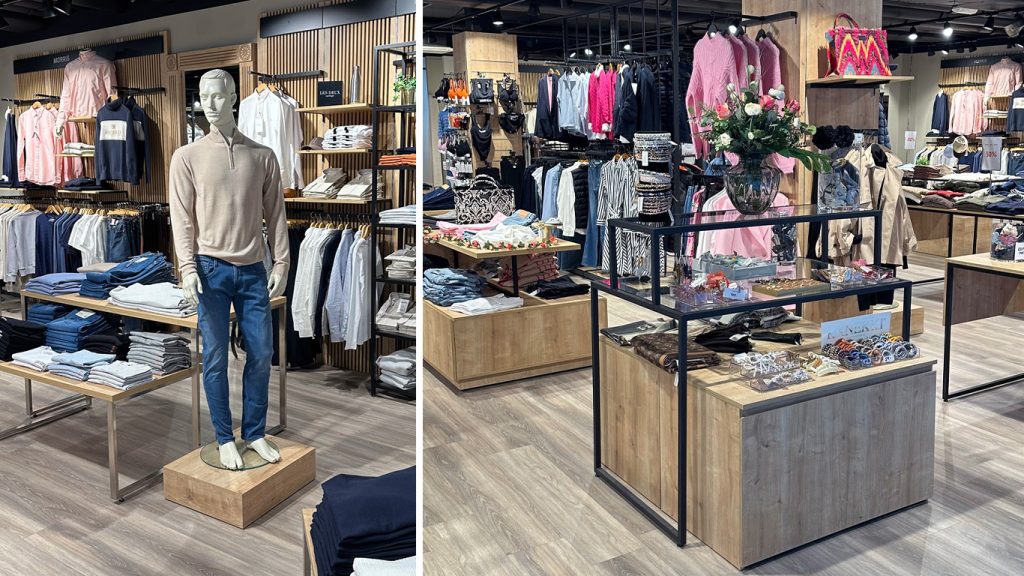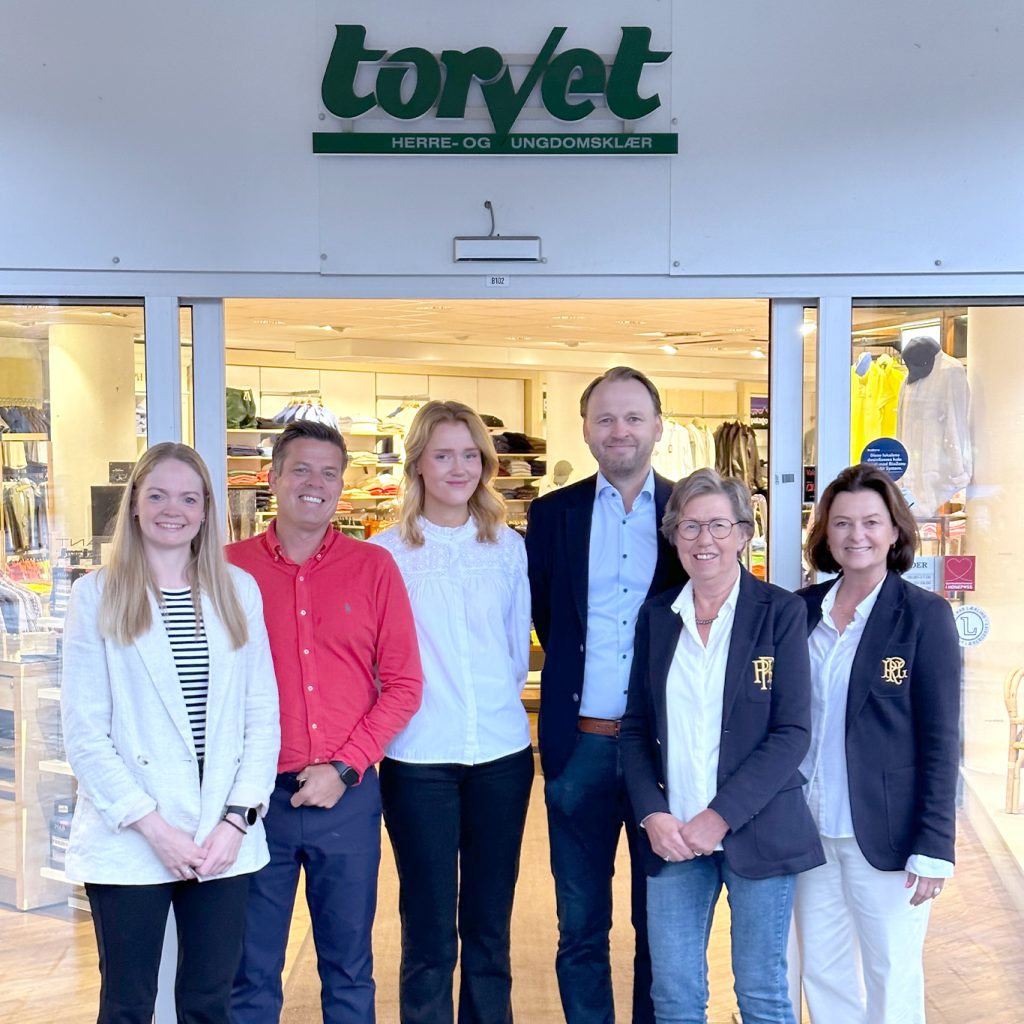Dressed for success
In Hønefoss, three clothes stores have achieved success through dedicated teamwork, bold decision-making and continuous adjustment – not to mention a healthy dose of gut feeling.

Thor Bård Gundersen has been working in the rag trade pretty much his whole life.
He joined the family business early, then, seven years ago, took over the wheel of Torvet Klær in Hønefoss, which was previously run by his father.
Torvet Klær is known to the locals as “the only bona fide gentleman’s outfitter in town”. Here you’ll find both off-the-peg and leisure wear.
“I’ve been running Torvet for a good few year as well as both opened my own shops and sold my own shops,” says Gundersen by way of introduction.
Today he is the owner of several clothes shops in the centre of Hønefoss. He took over Tronrud Klær – established in Hønefoss as early as 1939 – as many as fifteen years ago.
Success at the centre
Since that time, Tronrud Klær has undergone significant changes. It was, for example, part of the Vic chain for a while, going under the name of Vic Tronrud.
Then, after 80 years, the store left its time-honoured premises in Hønefoss Bru 1 and moved into the KUBEN shopping centre, strategically placed in the centre of town.
The decision to move was a reaction to challenges facing the original location, as business in the area was declining, explains Gundersen.
“The store was hidden in an old, town block. What’s more, a small shopping centre was built, with a cinema, NAV office and grocery stores. There were a few shops there when they opened, but they are all gone now. So it was a bit difficult,” he says.
“We moved Tronrud in April 2023 and, on average, doubled our turnover for each month for the rest of the year.”
Thor Bård Gundersen
He describes the decision as essential in order to survive.
“The choice for us was either to find premises at the centre or close the doors for good. A simple choice in the end.”
Thanks to his previous shop management experience, he knew exactly what he was looking for. The centre was reorganising a few stores and Tronrud Klær found a space alongside the children’s store Name It, which Gundersen already owned with his wife.
“We moved Tronrud in April 2023 and, on average, doubled our turnover for each month for the rest of the year.” In December, we enjoyed a 170% increase, so we must say it’s been a success! Shopping-centre premises are more expensive than out in the street, so we had to increase turnover, but, fortunately, it’s gone even better than expected.”
A name change and a new look
The new beginning was not solely down to the move; the store also underwent a name change as part of its reprofiling.
“We changed from being Vic Tronrud to Bugatti. And the Bugatti name has its own story: we’d actually run a teen clothing store with that name at KUBEN for 25 years. So, for us there was a feeling of ‘back to how things were before’.”“Tell me a bit more about the makeover – what did that involve?”
“We had a refit at Tronrud Klær two years before the move, when half the store got a proper upgrade. We took that decor with us to KUBEN as it’s still very much up to date. On that occasion, we used Bård Løkenhagen at Inter Partner Nord. The shop-fitting we took with us was sufficient for about 90 to 100 square metres. The current store has a
shop floor of about 220, so we had to buy new fixtures too. Among other things, we changed all the lighting and laid a new floor. The store is actually completely new,” Gundersen tell us.
A further useful function was introduced to the benefit of both Bugatti and Name It: an opening towards the rear of both stores allows both customers and staff to move freely between them. This is particularly helpful to the staff:
“It’s to do with the possibility of helping each other out should it be necessary. We are very aware of our being three stores in a relatively small town, so it’s important that we are a team. We help each other and make each other better.”

City or country
Bugatti today is a multi-brand store and is absolutely “ready for landing”, Gundersen says.
“We’ve been running the store up there for about eight months now, and things are set to get a bit easier if you look at the development. You’re constantly adjusting all the time; you have to fine-tune your stores. It’s something you do almost daily. You must adjust to the latest fashion and demand in the market – and that’s evolving all the time.”
Being spot on is a tricky balancing act however:
“I see that some people are extremely ‘with it’ when it comes to trends and fashion, so much so they can end up buying in too early. We try to live by the classic but sporty collegiate style that embraces fairly widely. On the leisure side, there are things you can use for day-to-day wear or when you want to look smart.
“Besides, our off-the-peg styles are fairly classic. A typical Norwegian man usually has one suit in his wardrobe if he’s not obliged to look smart at work. In city stores, where perhaps a number of customers buy suits for work, you can offer a little more variation. Out in the country, though, as we are, people think more of smart clothes as something for special occasions. Then you need something a bit more classic.”

Brand uplift at Texcon
“How do you get your customers to come to you rather than anyone else?”
“We have to stand out. What’s important today is that you find your concept and are very clear about it. Many of the “out-and-out chain-stores” don’t actually sell any brands anymore. They make all their goods themselves. So, they’ve become more like each other in the way they do business. But we aim to be good with branded products and are very clear about that.
“So how did you arrive at the concept?”
“That’s something we did ourselves, but the girls from Bugatti had two days with Kristine Andersen at Texcon to take a closer look at a brand uplift for the store. This was to raise awareness and to get us to reflect over where we want to go and what we want to be in the future. So now the purchasing for next autumn is in full swing. We haven’t made any major changes, but we’ll be looking at a few new brands and we’re going to sharpen our focus a little.”
“What’s the way of thinking when you want to ‘sharpen your focus’?”
“There’s a big difference between running a shop in central Oslo or in Alta – the type of selection you have and the type of clothes you have is bound to vary. We live in a country with very different seasons and climates. And of course, you must consider finances too; you can sell ‘expensive goods’ more easily in the big cities than in smaller places where, you might say, there are more people with lower incomes. That’s just the way it is. That’s why I think it’s so important to adjust to local conditions. And then you’ve always got great backing from Texcon. They do such a lot that you don’t even think about. They make it possible for us to do business.
“We try to live by the classic but sporty collegiate style that embraces fairly widely.”
Thor Bård Gundersen
Great staff is the key
“Bearing in mind what you said about central Oslo and Alta, that you have to adapt to local conditions… What’s the key to attracting customers in Hønefoss?”
“Well, we’re obviously fairly close to Oslo and Sandvika, so there’s a lot around us, and that’s why you can’t afford to sharpen the focus too much. If your range gets too narrow, you suddenly find your business isn’t viable in such small places. You have to embrace more widely in the country than in the cities, where you can actually have a really tight focus. For us it’s important that we’re able to offer our goods to a slightly wider customer group.
“Besides having to stand out, having great staff is the key to success today. You have to be able to provide that extra feeling of service in the store. If you don’t, people could just as well buy their goods somewhere else or online.” “Say a few words about what your business culture is all about…”
“It’s primarily about ensuring the customer is satisfied and being prepared to go the extra mile. That’s very important to us. If they’ve got a problem or a complaint, it must be sorted out straight away. If there’s something the customer wants that we don’t have in stock, we try and get it for them – always.”
In addition, there are always two permanent members of staff in on Saturdays, when customer traffic is greatest:
“We sell suits and off-the-peg products, so it’s good to have the people that ‘know everything’ at work. It’s important that the customer feels taken care of.”

Close to the local community
And good service does not go unnoticed. Last summer, the local paper initiated a best service vote for businesses in all the surrounding areas.
Torvet Klær was the outright winner.
“I think we got close to 6,000 votes… That tells you that you’ve got a very good standing locally. So we have worked our way up with the store. Last year we had over-the-counter sales of a good 27 million kroner gross, and that’s a very healthy turnover for a men’s clothes shop in Hønefoss. And of course, it’s always nice to be appreciated.”
The store is also invested in local sponsorship, including ice hockey, football and cultural events.
“We want to show that we’re a local shop that’s engaged in the local community. We always provide prizes for the local raffle. We do business locally and pay our taxes locally so of course it’s important that we contribute and lend a hand locally too.
People travel more
“Have you any thoughts about potential challenges in the industry?”
“It used to be that a husband or wife ran a shop, then one of the kids would take over and it would go on like that for generations. Today, I can see that’s more difficult. There are very many stores in smaller places where they can barely find anyone to take over. Maybe you need to find some accomplished members of staff who can help take over the shop,” Gundersen wonders, before adding:
“And then there’s what’s happening generally, in lots of sectors: As soon as you move into smaller communities, where they used to have maybe a bookshop that also sold toys, and a clothes shop and shoe shop – and always a grocery store – maybe it’s only the grocery store that’s left today. So they disappear. That’s often the challenge. But then, maybe we’re like that too – we’re mobile. People travel more, people use the internet, so there’ll be a natural decline,” he reflects.
Listens to gut feelings
“What do you do yourself to keep your head above water?”
“Both in my private life and at work, I listen to my gut feelings. If it doesn’t feel right, I don’t do it; if I have a good gut feeling, then I do. And it often turns out to be right. You can do the maths and run analyses, but if you use your gut feeling alongside the analyses, then I think you can get a pretty good pointer. We’re very satisfied at the present moment, but we still have to go on developing. You always have to manage to do something new.